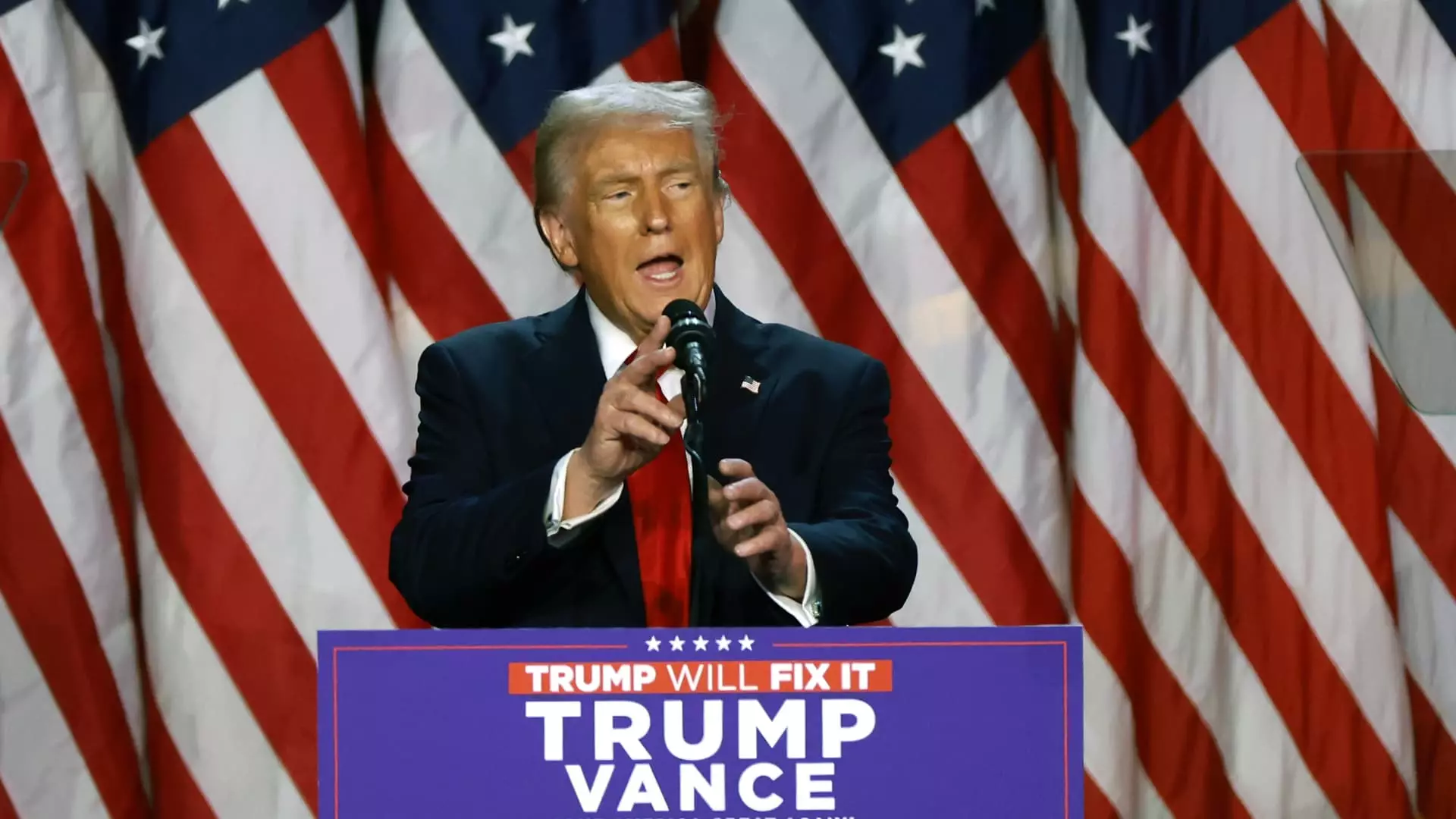The stock market’s exuberant response following the recent presidential election of Donald Trump in 2024, marked by record highs in the Dow Jones, S&P 500, and Nasdaq, seems at odds with the sentiments of countless Americans regarding their financial wellbeing. This disparity highlights a phenomenon some experts term a “vibecession,” a term encapsulating the disconnect between market optimism and individual financial realities. As excitement swells on Wall Street, many individuals remain concerned about their economic stability. This paradox raises an essential question: how can personal finance strategies align with volatile market sentiments and political changes?
Investors on Wall Street may respond instinctively to political victories with optimism, suggesting anticipated policy changes that could spur economic growth. However, the emotional and financial challenges faced by everyday Americans — from stagnant wages to increasing costs of living — reflect a more nuanced reality. Understanding this dichotomy is crucial for individuals seeking to enhance their financial positions in uncertain times.
While the political landscape undoubtedly influences economic conditions, financial experts stress the importance of concentrating on aspects within one’s control. Certified Financial Planner Rianka Dorsainvil emphasizes the necessity of maintaining a long-term financial plan that can withstand political turbulence. Adaptations should only be made as personal situations evolve. This perspective invites individuals to take proactive measures in their personal finance, rather than becoming reactionary to external shifts.
In moments of upheaval or rapid change, it’s easy to feel overwhelmed. Yet, financial resilience often stems from establishing a proactive approach to one’s finances, regardless of external economic conditions. Strategies focused on individual financial wellness can yield lasting benefits and create a buffer against the unpredictable nature of financial markets.
One of the most effective steps individuals can take is to create a robust emergency fund. Financial advisors recommend aiming for three to six months’ worth of living expenses set aside in a high-yield savings account. These savings can serve as a cushion during unforeseen circumstances, whether that be unexpected medical bills or job loss, thereby promoting a sense of stability amid external unpredictability.
Additionally, improving retirement savings through tax-advantaged accounts can greatly enhance financial security. Individuals should assess their options, comparing workplace 401(k) plans and IRAs, and optimize contributions to take full advantage of any employer matches. In an increasingly complex financial landscape, making informed choices regarding retirement accounts and benefits can reap dividends in the long run.
One significant barrier to financial wellness is credit card debt, which many Americans grapple with. Experts recommend refraining from using credit cards while actively working to pay off existing debts. Collaborating with a nonprofit credit counseling service can provide individuals with structured plans to reduce debt effectively. By actively managing credit, individuals can position themselves for better financial health and adaptability as economic policies shift.
It’s essential to recognize that debt reduction equates to greater financial flexibility. With reduced liabilities, individuals can take measured risks in investments or consider new opportunities, thus fostering a sense of empowerment in their financial lives.
Another intriguing approach to fortifying personal finances is finding unclaimed assets. Many people may be unaware of old bank accounts, forgotten inheritance, or misplaced bonds that could be recovered. Utilizing resources such as the National Association of State Treasurers’ missingmoney.com can help guide individuals to uncover these hidden assets with relative ease.
Finding and claiming such resources can provide a sudden boost to personal finances, thereby facilitating opportunities for investment or savings. Even a modest amount can be the first step towards reinforcing financial stability.
The Bottom Line: Resist Emotional Decisions
As stock markets fluctuate and headlines shift, it can be tempting to make hasty financial decisions based on short-term performances. Financial advisors, including Dorsainvil, urge against this instinct, suggesting that a focus on fundamental financial practices and goals should take precedence. Sustainable financial health stems from thoughtful, long-term planning, not day-to-day market sentiments.
While the landscape of personal finance may shift with each election or economic report, the principles that govern financial wellbeing remain constant. By concentrating on sound financial practices and strategies within one’s control, individuals can build a resilient financial foundation that can endure any sort of political or economic turbulence.

